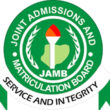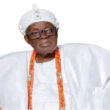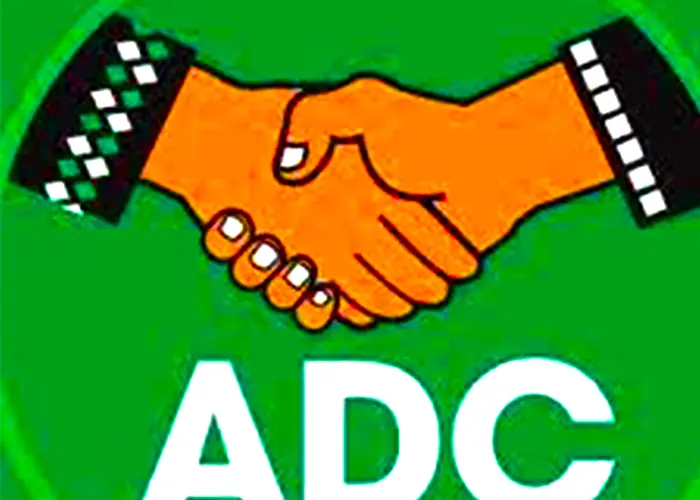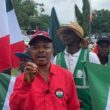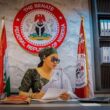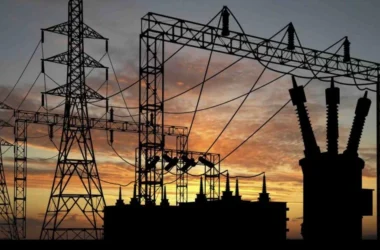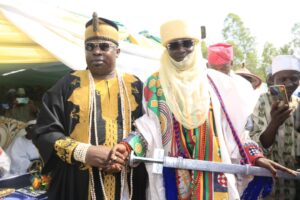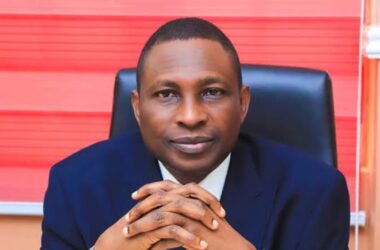The decision by Ralph Nwosu, the former National Chairman of the African Democratic Congress (ADC), to announce the collapse of the party’s national structure in favour of a new interim leadership backed by prominent politicians has sparked strong opposition from several state chairmen, threatening to destabilize the party ahead of the 2027 general elections.
This sweeping change, which paves the way for a coalition led by former Vice President Atiku Abubakar, aims to transform the ADC into a platform that can challenge President Bola Tinubu’s expected re-election bid. While the coalition may have strategic value to those spearheading it, some members within the party believe the process was neither transparent nor inclusive, and they are demanding answers.
As part of the new political structure, former Senate President David Mark has been appointed as Interim National Chairman, former Osun State Governor Rauf Aregbesola as Interim Secretary, and ex-Minister of Sports Bolaji Abdullahi as Interim Publicity Secretary. According to Nwosu, this leadership change is intended to help the party play a stronger national role. In a public statement, he confirmed that all existing executives had stepped down to allow the new interim leadership to take full control.
But rather than unifying the party, this announcement has ignited unrest. Dumebi Kachikwu, the party’s 2023 presidential candidate, did not mince words. He labelled the move as selfish and accused Atiku and others of hijacking the party. “A bunch of greedy old men,” he described them, in a sharp rebuke.
Elias Adikwu, a key ADC leader in Benue State, said the emergence of the new leaders was carried out without proper procedure. “We are not part of it and we will not take it. They cannot come to a party they did not register to join and take it over from those who built it,” he said. According to him, genuine leadership changes should involve discussions with key stakeholders across the country.
Adikwu also questioned the ongoing membership registration drive under the interim team. “Why are they asking people to come and register? What happened to the existing party register at the ward and local government levels?” he asked. “They called themselves interim executives, but the ADC Constitution has no provision for an interim arrangement. As far as we are concerned, we — the state chairmen — are the only legitimate National Executive Committee members of the party.”
In Akwa Ibom State, the ADC Chairman, Etimbuk Umoh, revealed they were still awaiting directives from their national leader, Dumebi Kachikwu, before making any further moves. “Our leader, Dumebi Kachikwu is yet to set an action plan for that (what to do next). We are waiting for him,” Umoh said.
Mohammed Khala, ADC chairman in Borno State, was more reserved. “We are keeping our plans close to our chest,” he told reporters, suggesting internal consultations were still ongoing.
For many in the youth wing of the party, the transition has been a bitter pill. Musa Matara, the National Publicity Secretary of the ADC Continental Youth Council, said members were not against efforts to improve governance in the country. Still, he criticized the lack of involvement of key members before the leadership change was announced.
“We are happy that these people joined us. ADC is free for all Nigerians, and here, we don’t have affiliations to regions, tribes or religion,” Matara said. “What we are saying is that we were not involved in their talks.”
He continued, “In every organisation, whether public or private, there must be procedures, and these procedures or processes are either regulated by a constitution or some guidelines. ADC has over 10 million members across the country. We were shocked to hear our National Chairman saying that all party structures have collapsed. What made them collapse?”
Matara also criticized the selection of new interim leaders, asking why individuals with long political histories in other parties were chosen to lead a party they had little to do with until recently. “The interim chairman is from the PDP, the secretary is from the APC, and the publicity secretary is from the PDP. Where is ADC, the mother who has worked tirelessly more than the others?” he asked.
He further noted, “Another issue is that the majority of ADC members are youths. You are now bringing back recycled men who have been around for decades. This is against the constitution of the party. What changes are they talking about?”
However, some leaders have welcomed the new direction. Former National Publicity Secretary of the party, Mabel Oboh, described the coalition as a positive step that could reshape the political space. “The people who make up the coalition are those with proven political records that have the wherewithal to harness votes for the party in the 2027 election in this country,” she said in a statement released in Benin City.
Elsewhere, the movement has begun to gain political traction. Former Minister of Transportation, Senator Idris Umar, led a delegation of political leaders from Gombe State to Atiku’s residence in Abuja. Speaking on behalf of the group, Umar said, “We are here to once again affirm the support of our people for Your Excellency, especially as you lead the charge for a united political front under the ADC coalition.”
The Gombe delegation included former Deputy Governor John Yoriyo, Air Vice Marshal Fura (retd.), and other high-profile figures. In his response, Atiku assured them of his full commitment. “I am further inspired by the Gombe stakeholders’ pledge of total support and loyalty to the decision of the coalition by joining the ADC. I vow to stand against the stealing of elections and oppose bad governance,’’ he said.
As part of its broader mobilisation strategy, the coalition recently began setting up grassroots structures in Sokoto State. Mainasara Umar has been appointed as the state coordinator for the coalition. In a letter signed by National Coordinator Mohammed Shuaibu, the appointment was described as “part of our broader plan to establish a grassroots platform that will inform and educate citizens on the real objectives of our coalition.”
In his acceptance remarks, Umar said, “This is not just about forming another political group. It’s about building a coalition of conscience — one that is committed to doing the right thing for Nigeria.”
On another front, Labour Party’s 2023 presidential candidate Peter Obi shared his perspective on the coalition while speaking during a live discussion on X Space. Obi said he would prefer to oversee national security instead of the typical petroleum portfolio associated with the presidency. “I will not be Minister of Petroleum, if there is minister I want to be, it is that of security to ensure protection of lives and property,” he said.
He added that leadership must be accountable to Nigerians. “If the leader’s family and the leader are not corrupt, you will reduce corruption by 60 per cent,” Obi said.
Meanwhile, other ADC chairmen have voiced support for the coalition. Kennedy Odion, chairman in Edo State, believes the coalition marks a turning point. “The coalition has come to stay and leaders have been appointed across the state,” he said. “It is a welcome development and a new dawn for our party.”
In Benue, ADC Chairman Celestine Orbunde rejected claims made by Dumebi Kachikwu, stating that the former candidate had been expelled from the party and no longer held relevance. “Benue State chapter of ADC is fully in support of the new leaders,” Orbunde noted.
Delta State Chairman, Austin Okolie, also dismissed Kachikwu’s stance. “He only ran election as a candidate and that election is over. He has not contributed anything to Delta State ADC,” Okolie stated.
In defense of the transition process, Interim Publicity Secretary Bolaji Abdullahi said the leadership changes were carried out in line with the party’s procedures. “There were NEC meetings of ADC ratified by INEC that authorised the NWC to take actions,” he said. “If any state chairman requires further clarification, they may approach the immediate past leadership.”



